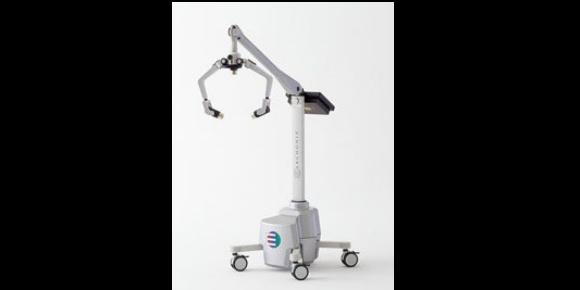
Low-Level Laser Therapy for the Treatment of Chronic Plantar Fasciitis
A Prospective Study
James R. Jastifer, MD1,Fernanda Catena, MD2,Jesse F. Doty, MD3,Faustin Stevens, MD4,Michael J. Coughlin, MD1
Abstract
Background: Plantar fasciitis affects nearly 1 million people annually in the United States. Traditional nonoperative management is successful
in about 90% of patients, usually within 10 months. Chronic plantar fasciitis develops in about 10% of patients and is a difficult clinical
problem to treat. A newly emerging technology, low-level laser therapy (LLLT), has demonstrated promising results for the treatment of acute
and chronic pain.
Methods: Thirty patients were administered LLLT and completed 12 months of follow-up. Patients were treated twice a week for 3 weeks for a
total of 6 treatments and were evaluated at baseline, 2 weeks post procedure, and 6 and 12 months post procedure. Patients completed the
Visual Analog Scale (VAS) and Foot Function Index (FFI) at study follow-up periods.
Results: Patients demonstrated a mean improvement in heel pain VAS from 67.8 out of 100 at baseline to 6.9 out of 100 at the 12-month
follow-up period. Total FFI score improved from a mean of 106.2 at baseline to 32.3 at 12 months post procedure.
Conclusion: Although further studies are warranted, this study shows that LLLT is a promising treatment of chronic plantar fasciitis.
Level of Evidence: Level 4, case series.
plantar fasciitis heel pain laser therapy
Plantar heel pain is one of the most common pathologies of the foot, accounting for up to 15% of foot-related symptoms presenting to
physicians and 1% of all visits to orthopedic surgeons.30 The clinical manifestations can be disabling, and despite its high incidence, the
specific cause of plantar fasciitis is poorly understood; it is likely multifactorial and may be associated with systemic disease, local changes to
the plantar fascia tissue, or altered foot and ankle biomechanics.8,14,20,24,32
The choice of nonoperative treatment is largely up to the physician. Numerous treatment options exist, including stretching, night splints,
orthotics, casting, steroid injections, and anti-inflammatory medications. There is limited high-level evidence to support one treatment over
another.11 The treatment of plantar fasciitis can be frustrating, yet about 90% of patients will respond favorably to nonoperative treatment,
usually within 10 months.10⇓-12
Failure of these measures occurs in about 10% of patients, resulting in chronic plantar fasciitis and a difficult clinical problem. There is also
limited high-level evidence guiding the treatment of this group of patients. A recent study showed that up to 55% of foot and ankle surgeons
would consider surgery for the treatment of plantar fasciitis refractory to 10 months of nonoperative management.11
Short of surgery, a new treatment for chronic plantar fasciitis is low-level laser therapy (LLLT), which has been used extensively in other areas
of the body. It has become increasingly popular because it is painless, is noninvasive, and has shown short-term efficacy in the treatment of
plantar fasciitis.18,21 The purpose of this clinical study was to determine the effectiveness of LLLT in the treatment of chronic plantar fasciitis.
months. Thirty of the 34 patients elected to enroll and completed 12 months of follow-up. The original 16 treatment group participants had
already received treatment and so were followed to the 12-month endpoint. The 14 from the original placebo group were converted to a
treatment group, administered treatment, and followed to the 12-month endpoint.
If you would like to see the full article simply click on the link below.